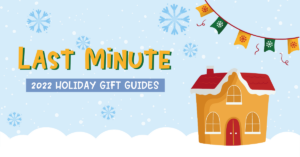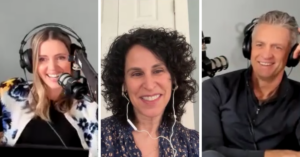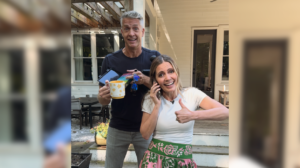Over the last couple of years, the political climate has become … contentious. It’s caused families to shy away from discussing politics and government with their children. Despite that, studies show teens still think it’s important to follow current events, politics included. A recent survey of teens aged 13–17 found that 1/3 of respondents relied on their parents, family members, or teachers for information. It’s obvious, we need to do the work to help guide them and make them feel safe talking to us.
I grew up with parents who jokingly “canceled each other out” at the polls every year. It wasn’t a big deal back then to have a difference in opinions. Now it seems a difference in opinions can tear families apart. If my kids and I don’t agree on politics in 20 years, I still want to have a relationship with them. I don’t want this to be something that is so defining.
So how do we begin to talk to kids about politics?
Starting A Conversation
This week on the podcast, we brought in Lindsey Cormack – an associate professor of Political Science and Director of the Diplomacy Lab. Her latest book, How to Raise a Citizen & Why it’s Up to You to Do It, aims to reinvigorate multigenerational political discussion and governmental know-how. Lindsey explains that the best way to start a conversation with your kids about any political issue, is to ask “what have you heard?” The reason that question is helpful is it releases them from having to have or justify their opinion.
We also talked with Lindsey about what to keep in mind when listening to teens’ views on issues and what teens must do before they fully participate in politics. Only about 25% of our 18 year olds are registered to vote on any given election year. It’s our job to help them register to vote, understand different elections, and to discuss federalism.
How To Make Change
Federalism (put plainly) is the understanding that the federal government does some things, the state government does some things, and the local government does some things. Sometimes there is overlap between them, and sometimes there is not. It’s so important to remind them to be informed about your local and state government issues–and for them to know they have a voice!
A concerned Mom in our neighborhood showed up at enough City Council meetings that we are now getting more sidewalks where we live. We can make change in our own backyard if we understand how to do so.
Listen to our podcast discussion and check out Lindsey’s book. She has bullet points and scripts to help you begin to talk to your kids about civics and government. (And maybe learn something yourself!) Also, stay tuned until the end where we discuss our Top 5 craziest laws. Happy listening:
- Acast: https://open.acast.com/
public/streams/ 618c3caaa322d1001350082c/ episodes/ 66dcac8ae3cb6d8da9eb7d1e.mp3 - Apple Podcasts: https://podcasts.
apple.com/us/podcast/the- holderness-family-podcast/ id1378725018?i=1000668985051 - Spotify: https://open.spotify.
com/episode/ 5yXLynEwWit1bB9U8zcv8w?si= 67f3ffae0b2e4bb8 - Pandora: https://pandora.app.
link/UPRg5JfTNMb - Amazon: https://music.amazon.
com/podcasts/094464e9-aad9- 4b09-8ee8-248c76b48bd6/ episodes/4e2db006-099c-4805- ac28-96a8e7b805f7/the- holderness-family-podcast- talking-to-kids-about- politics-with-lindsey-cormack




